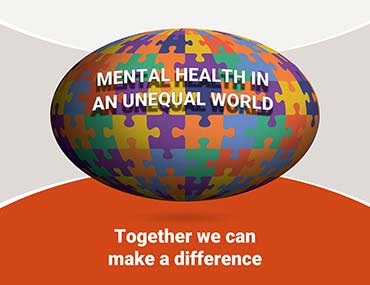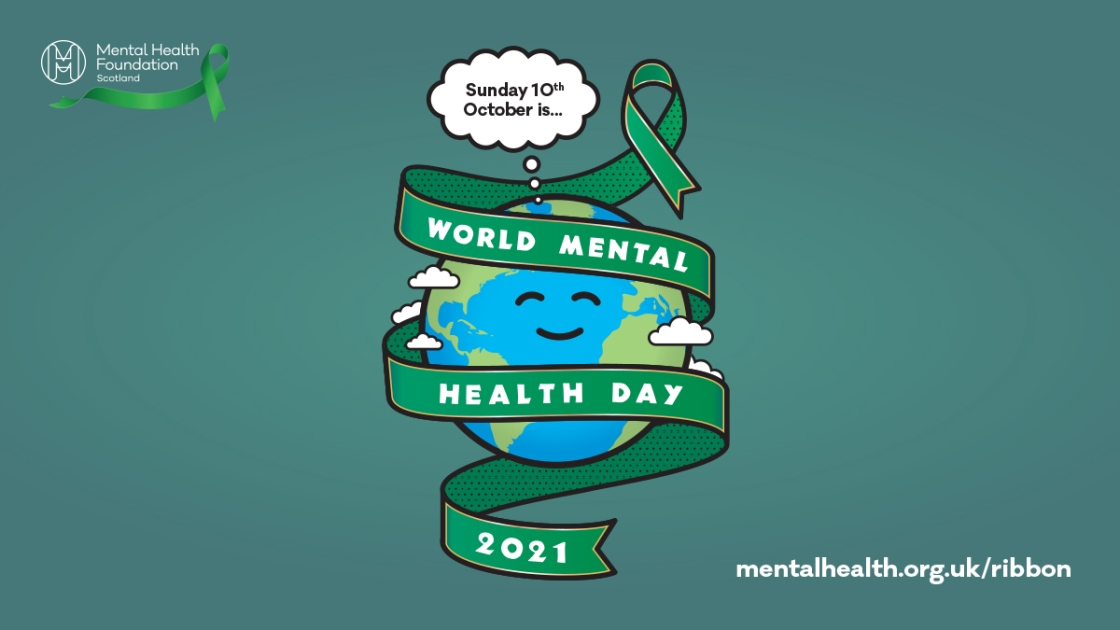We live in an unequal world where access to mental health support isn’t fair for all.
This World Mental Health Day (October, 10), is about showcasing the voices of people experiencing inequality due to their mental health, and highlighting the challenges people still face in accessing help.
The World Federation for Mental Health stated the stark reality of this inequality. “2020 highlighted inequalities due to race and ethnicity, sexual orientation and gender identity, and the lack of respect for human rights in many countries, including for people living with mental health conditions. Such inequalities have an impact on people’s mental health.”
Having poor mental health is hard enough without having to fight for support
They also demonstrated the difficulties people face getting help. “Many people with a mental illness do not receive the treatment that they are entitled to and deserve and together with their families and carers continue to experience stigma and discrimination.”

Here in the UK, we’re experiencing over stretched mental health services and an overwhelming lack of NHS funding for vital life-changing support. This makes it very difficult for people in crisis to get the help that they so desperately need. Having poor mental health is hard enough without having to fight for mental health care.
Read more: What happens when you call the Samaritans?
Not only this, the Covid-19 pandemic has caused higher levels of unemployment and government cuts to welfare means many are struggling, more than ever.
But make no mistake, we were always facing a mental health epidemic, Covid has just exacerbated the pre-existing problems and made life harder for many.
So, how is mental health support unequal?
ReThink Mental Health reported that: “Black people are still four times more likely than their white counterparts to be sectioned.
“LGBT+ people are at more risk of suicidal behaviour and self-harm than non-LGBT+ people. People living with severe mental illness still have a shorter life expectancy than others.”
“Mental health is an investment and not an expense and should be prioritised to avert a further catastrophe.”
Dr Daniels, President of WFMH
This is wrong and it needs to be changed.
Additionally, WMHF explained how mental health inequality affects people’s lives: “The stigma and discrimination experienced by people who experience mental ill health not only affects that person’s physical and mental health, stigma also affects their educational opportunities, current and future earning and job prospects, and also affects their families and loved ones.” It basically becomes a vicious cycle that many struggle to overcome.
Read more: A letter to anyone who has been failed with their mental health care
Although this post hits you with the grim reality of our mental health crisis, it is intended as an urgent request, or an open letter, if you will, for investment in mental health services in the UK, because to end with the words of Dr Daniels, President of WFMH, “Mental health is an investment and not an expense and should be prioritised to avert a further catastrophe.”
If you need mental health support whatever you’re going through, a Samaritan will face it with you. They’re open 24 hours a day, 365 days a year. Call 116 123 for free or email: jo@samaritans.org

